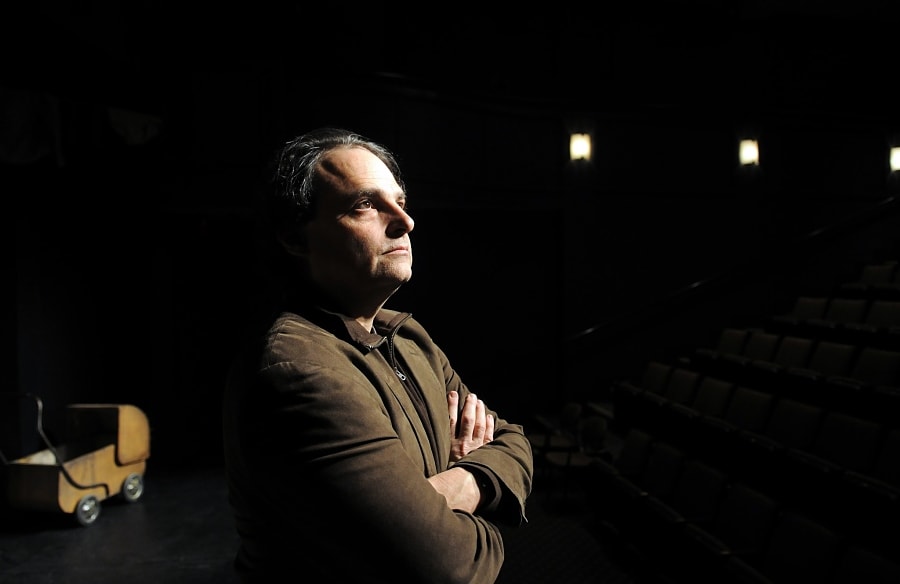Members of COPMA have returned to the readings this year with the specific intent to debate. The presence of a vocal opposition has made Roth into an unlikely activist—not necessarily toward a specific political standpoint, he emphasizes, but simply in favor of the right to produce theatre that speaks so openly about the Middle East.
“I don’t want to position myself as the leader of a movement,” Roth says. “I know better peace activists. My job is to produce compelling art, and I want to keep our eyes wide open culturally. When we look at Israel, we’re looking at a full portrait, un-naive and knowing. That’s why it was important to fight to have a reading series this year. To stay close. Staying close and staying personal is as far as my activist mandate goes.”
To ensure that he stays close, Roth travels to Israel nearly every year. Asked whether Theater J gives equal merit to plays that speak to a right-wing perspective on Israel, Roth admits, “It’s hard to find good plays that speak from either political perspective.”
The most recent play that took a more right-leaning stance was Peter-Adrian Cohen’s To Pay the Price, which dramatized the life of Yoni Netanyahu (brother of the current Israeli prime minister), who became a hero of the Israeli Defense Forces when he led the 1976 rescue of Jewish hostages in Uganda. The play, presented in last year’s “Voices” series, offered strong support of Israel’s army.
While we might think of all Israeli drama as political in one direction or another, Roth is quick to point out that Israel’s theatregoers are “not crying out for political work.” That just happens to be “what smart Washington theatregoers are more interested in. ”
And it’s worth noting that the Middle East is not the only subject matter that has sparked controversy at Theater J. The theatre’s opening play this season was Imagining Madoff, an examination of the relationship between Bernie Madoff and Elie Wiesel, the Holocaust survivor, philanthropist and Nobel laureate. Wiesel objected to his portrayal, and after much debate playwright Deb Margolin replaced Wiesel’s character with a fictional one who shared Wiesel’s attributes. What makes this example emblematic of Theater J is that a considerable hurdle in the creative process did not thwart the production. By compromise or concession, Roth gets the show on.
And as for the JCC’s role in mitigating COPMA’s protests, CEO Zawatsky has begun to meet with its leaders as a way to “demystify” Theater J to them.
“These are highly charged times to be talking about Israel, and everybody around us is nervous about these conversations,” Roth concedes. If Roth himself is nervous, it doesn’t show. He’s cultivated 30 or so works over the last 10 years, and hopes to create a season in which half of the plays are about the Middle East. Theater J is also in talks with the Kennedy Center about the possibility of producing Nalaga’at, a deaf and blind performance group based in Israel.
The tensions born out of the Middle East are fertile ground for artists. But Roth’s strongest and consistent impulses are also his most personal: the “bridge crossing” between Jews and non-Jews.
“It stems from my work as a playwright and as the child of Holocaust survivors,” Roth says. “The black-Jewish dialogue, because of my own upbringing on the South Side of Chicago, is extraordinarily personal to me, too. The encountering of Palestinians and the dialogue between the Jew and the Arab has grown out of those same impulses—the commonality of experience.”
As plans get under way for the 2012-13 season, Roth is mulling over which new Middle East plays to present and the sort of questions he hopes they’ll ask. Whether the topic sparks interest or anger, it is always, for Roth, a conversation worth having.
Lonnie Firestone is a Brooklyn-based writer (www.everybodyrise.net).


